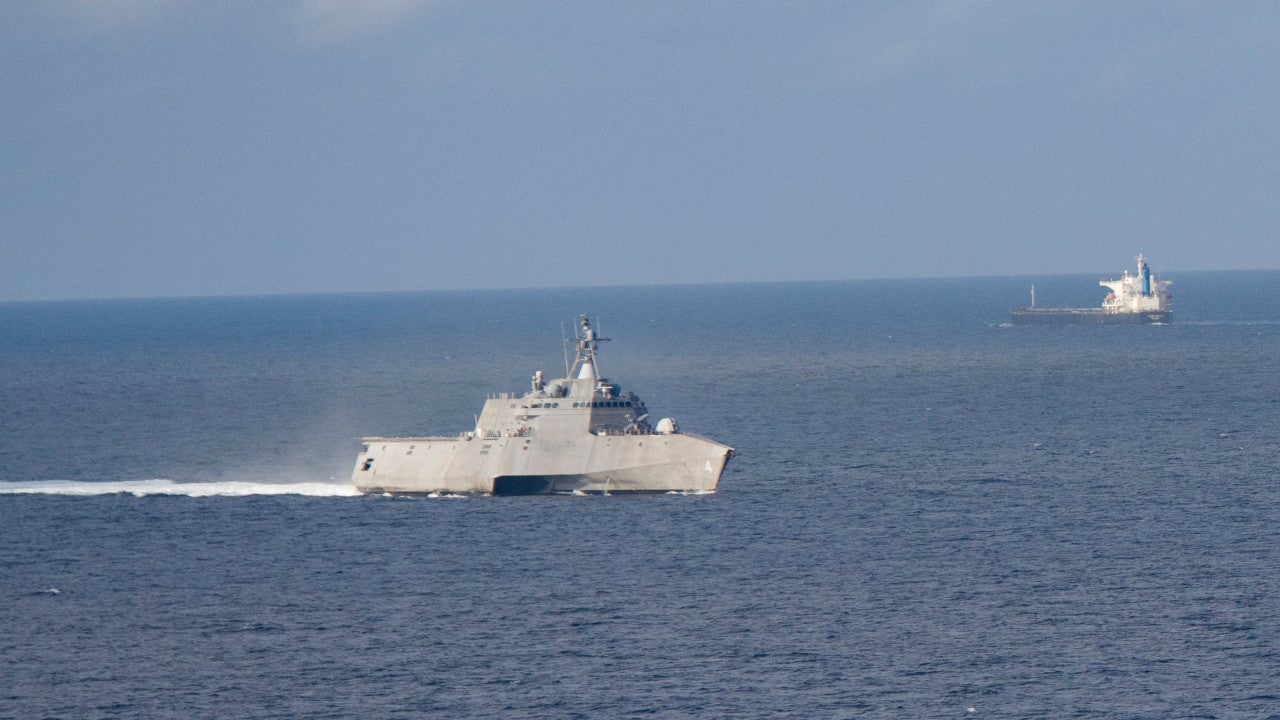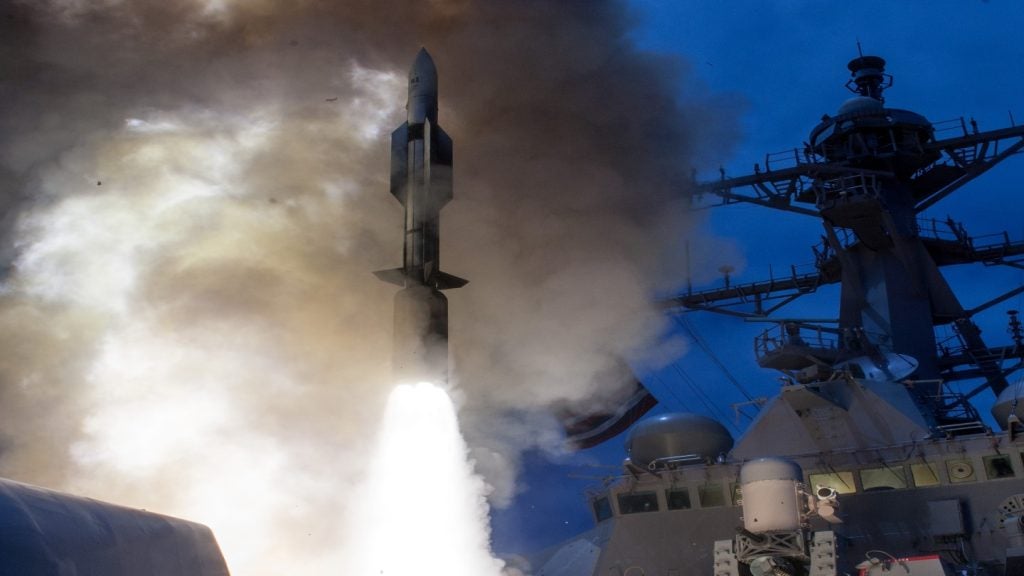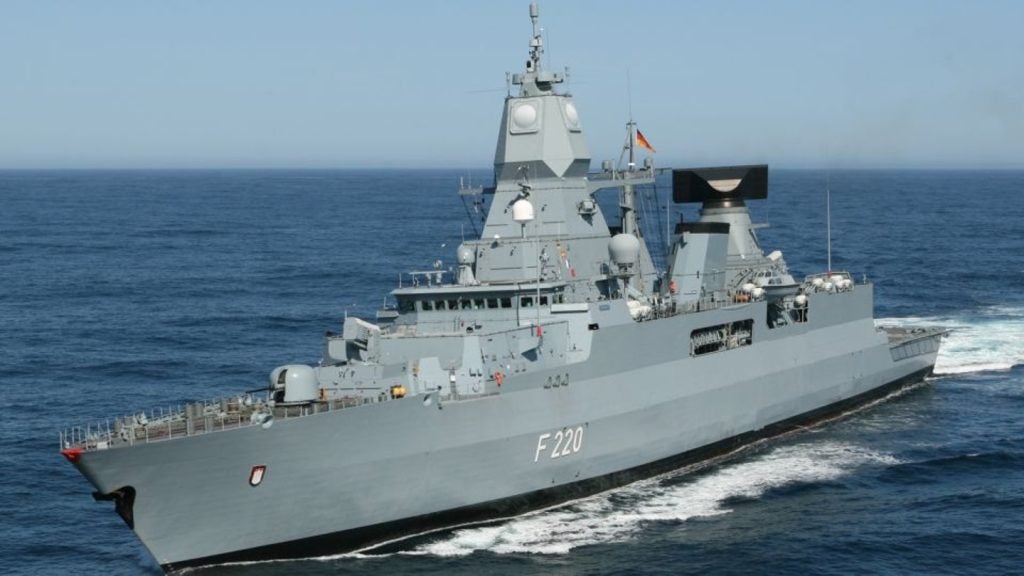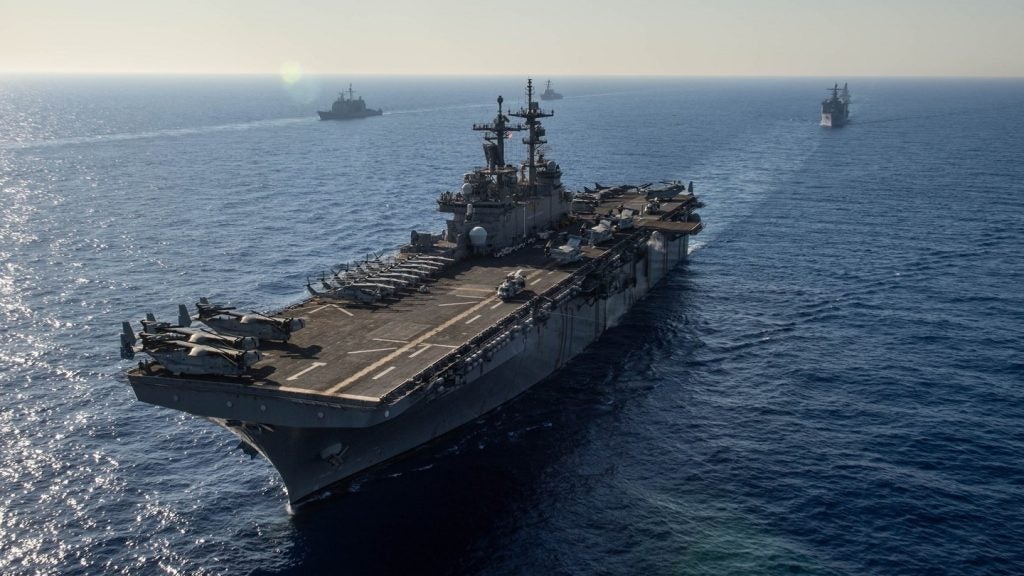There are still many USV programmes under development and at the technology demonstration level. USVs also have the potential to be used as force multipliers in many areas of naval operations, with their modular structures and their ability to carry many different payloads.
Macroeconomic Trends
Listed below are the key macroeconomic trends impacting the USV theme, as identified by GlobalData.
Common procurement and R&D cost-sharing
Sharing platforms and systems’ development costs are expected to expand as a trend, as new technologies require considerable investments. In addition, given the limited funding in relation to the range of needs, initiating common procurement between countries can reduce the acquisition and life-cycle costs. For instance, on 03 October 2018, Defence Ministers from 13 NATO Allies signed a declaration of intent to cooperate on the introduction of Maritime Unmanned Systems. The countries aimed to create better, more flexible and more interoperable unmanned, maritime vehicles and systems. Later, on 11 April 2019, France joined this initiative.
Moreover, the Belgian and Dutch navies will replace their aging fleets of Tripartite-class vessels from 2023. Under the mine countermeasures (MCM) programme, the Belgium Naval & Robotics consortium will supply 12 vessels and associated equipment to the Belgian and Dutch Navies. This vessel will be equipped with ECA Group’s Inspector 125 unmanned surface vehicles, A18-M autonomous underwater vehicles, SEASCAN and K-STER C remotely operated vehicles (ROV). All these drones can be operated autonomously from the USV Inspector 125. The drone system also includes unmanned aerial vehicles and influence sweeps.
Similarly, the UK and France have been collaborating to enhance their MCM capabilities. On behalf of the French Defence Procurement Agency (DGA) in France and the UK MOD’s Defence Equipment & Support organisation, OCCAR has awarded the Maritime Mine Counter Measures (MMCM) contract to Thales, in collaboration with BAE Systems and their partners in France (ECA) and the UK (ASV, Wood & Douglas, Saab).
As part of the MMCM programme, Thales and BAE Systems are committed to providing systems to both the French Navy and Royal Navy for two years of evaluation testing. French and UK contractors involved in the MMCM system include ASV for the supply of the surface vehicle, ECA for the supply of the unmanned underwater vehicles, Saab for the ROVs and Wood & Douglas for communications.
How well do you really know your competitors?
Access the most comprehensive Company Profiles on the market, powered by GlobalData. Save hours of research. Gain competitive edge.

Thank you!
Your download email will arrive shortly
Not ready to buy yet? Download a free sample
We are confident about the unique quality of our Company Profiles. However, we want you to make the most beneficial decision for your business, so we offer a free sample that you can download by submitting the below form
By GlobalDataCompany partnership
USV manufacturer companies partner with other companies on hull, payload and control systems. For instance, Israel-based company Elbit Systems‘ ISTAR Division and Italian firm Leonardo partnered to develop an additional torpedo capability for the Seagull unmanned surface vessel. The Seagull boat is also designed and manufactured by Dutch companies De Haas Maassluis BV (builder) and Ginton Naval Architects BV (designer). Metal Shark partnered with Spatial Integrated Systems and Sea Machine to provide Sharktech and LRUS USVs to the US Marines and Coastguard.
Economic risk
Trade war policies have a significant impact on global and national economies. Being used as a political weapon between countries, they feed a downward spiral of measures and countermeasures between opponents, which are not only limited to economic levers but can expand to other areas of international relations. This could potentially result in an escalation due to misperception. In terms of USV production, companies are dependent on imports, such as semiconductors, rare earth minerals, and battery technology used in USVs. The scarcity of these materials can paralyse companies and navies and impact costs of USVs.
This is an edited extract from the Unmanned Surface Vehicles – Thematic Research report produced by GlobalData Thematic Research.










Related Company Profiles
BAE Systems Plc
Thales SA
Leonardo SpA
BAE Systems Inc
Elbit Systems Ltd